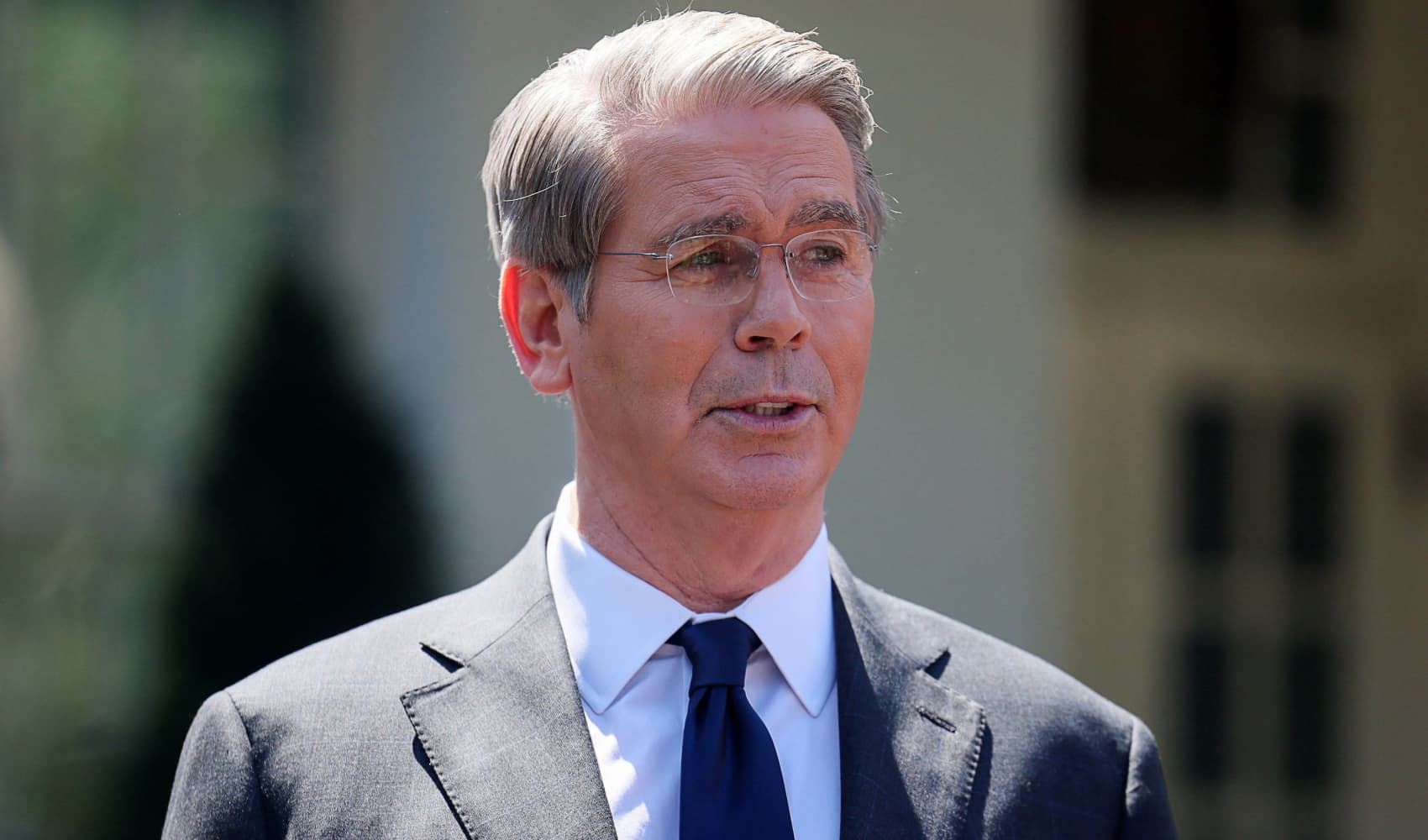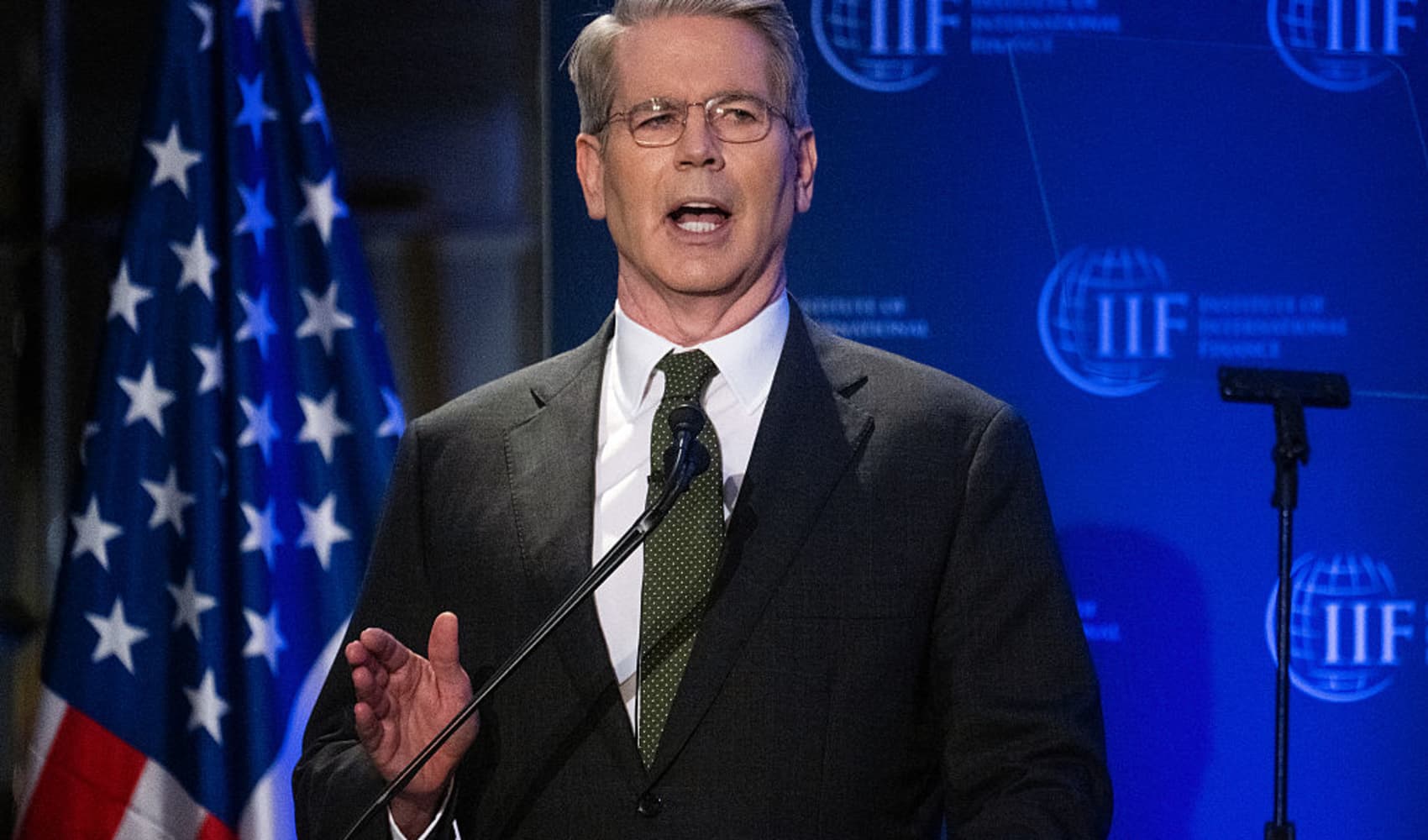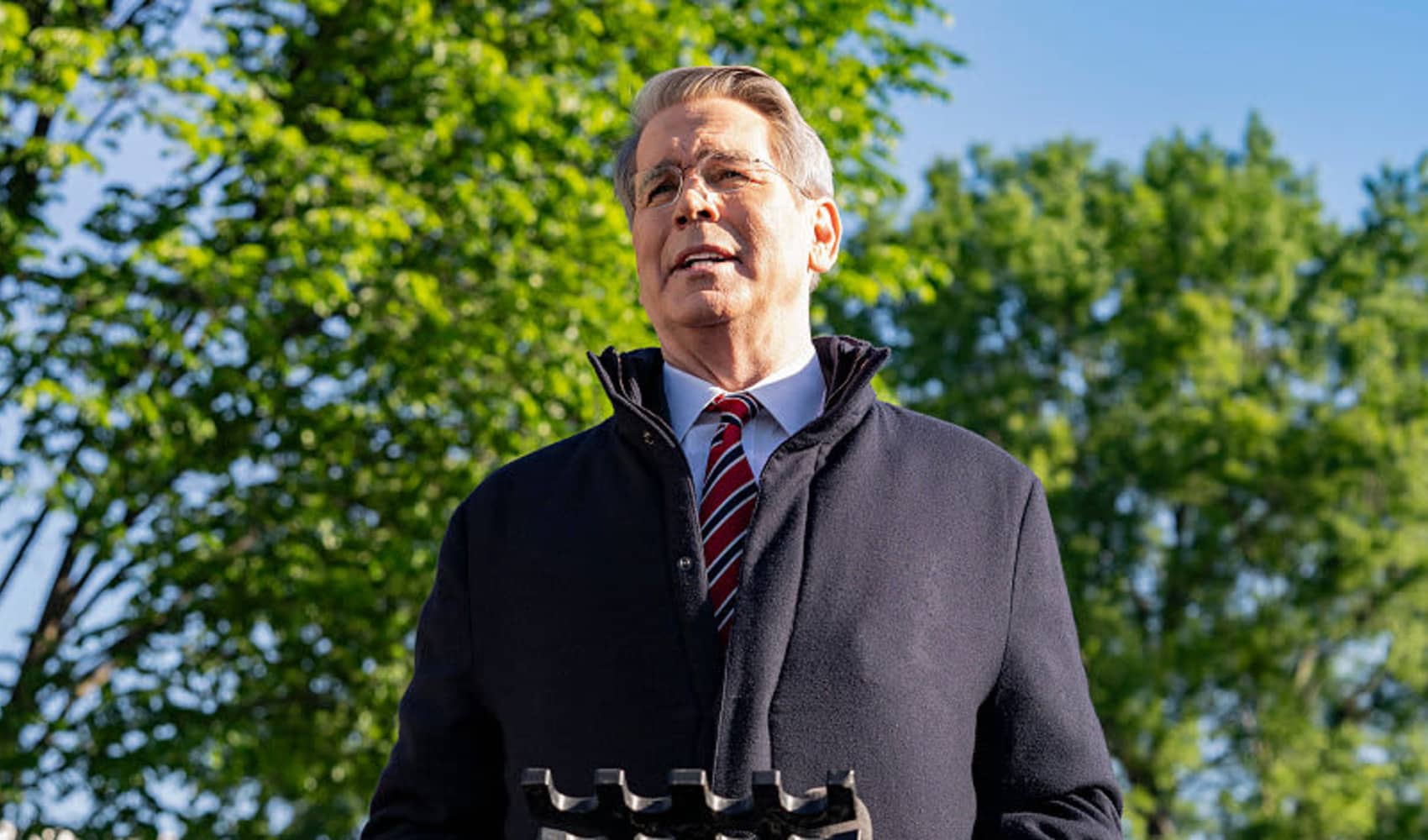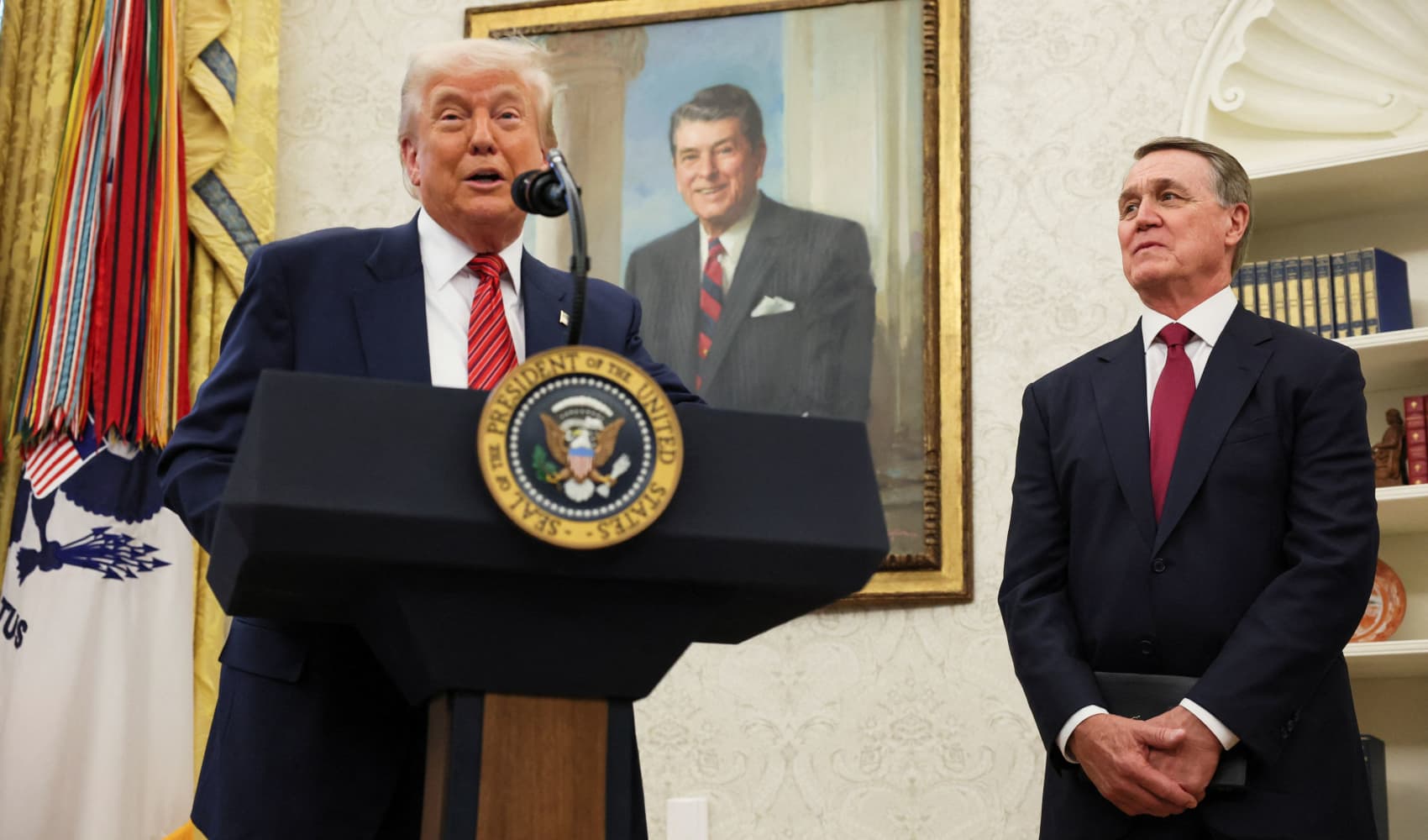US-China Trade War: Bessent Predicts De-escalation Soon!
Trade Truce on the Horizon? Bessent Predicts U.S.-China Tariff De-escalation
Introduction: A Glimmer of Hope in the Trade War
Are we finally seeing a light at the end of the tunnel in the U.S.-China trade war? Treasury Secretary Scott Bessent seems to think so. According to reports, Bessent anticipates a “de-escalation” in the tariff battle between Washington and Beijing "in the very near future." But what does this really mean for businesses, consumers, and the global economy? Let's dive in and explore the potential implications.
The Impasse: How Did We Get Here?
The U.S.-China trade war has been a long and winding road, filled with tariffs, retaliations, and plenty of uncertainty. It all started with President Trump's concerns about the trade deficit between the two countries and accusations of unfair trade practices by China. The result? Billions of dollars in tariffs slapped on goods flowing between the two economic giants. Think of it like a high-stakes poker game, where each side keeps raising the stakes, hoping the other will fold.
Bessent's Bold Prediction: Why the Optimism?
So, why is Bessent so confident about a de-escalation? He reportedly called the current sky-high tariff situation "unsustainable." That's a pretty strong statement! Perhaps both sides are starting to feel the pain. Businesses are struggling with higher costs, consumers are paying more for goods, and the global economy is feeling the chill. Maybe, just maybe, common sense is starting to prevail.
Behind Closed Doors: The JPMorgan Chase Investor Summit
Bessent shared his prediction at a private investor summit hosted by JPMorgan Chase in Washington. These closed-door meetings often provide a more candid view of the economic landscape than official statements. It's a sign that even within government circles, there's a growing recognition that the current trade war is doing more harm than good.
What Does "De-escalation" Really Mean?
De-escalation could take many forms. It might involve a gradual reduction of tariffs, a commitment to negotiate specific trade issues, or even a complete rollback of the tariffs imposed so far. The key question is: What concrete steps will be taken to ease the tension and restore a more stable trading relationship?
The Unsustainable Status Quo: A Breaking Point?
Bessent's comment about the "unsustainable status quo" is crucial. Think of it like a rubber band stretched to its limit. Eventually, it's going to snap. The longer the trade war drags on, the greater the risk of long-term damage to the global economy. Businesses are starting to diversify their supply chains, and consumers are getting tired of paying more. The pressure is building.
Who Benefits from a Trade Truce?
Businesses: A Sigh of Relief
Businesses on both sides of the Pacific would breathe a collective sigh of relief. Lower tariffs mean lower costs, which can lead to increased profits, investment, and job creation. It's like taking a weight off their shoulders.
Consumers: Lower Prices and More Choices
Consumers would also benefit from lower prices on a wide range of goods. Think of it as a mini-stimulus package, putting more money back into people's pockets.
The Global Economy: A Boost in Confidence
The global economy would get a much-needed boost in confidence. A trade truce could help to stabilize financial markets, encourage investment, and promote economic growth. It's like a shot in the arm for the world's economic health.
The Potential Roadblocks: What Could Go Wrong?
Political Pressures: The Art of the Deal
Despite Bessent's optimism, political pressures could still derail a trade truce. Both sides have their own domestic political considerations to take into account. The "art of the deal" can be tricky, especially when national pride and political agendas are involved.
Enforcement Mechanisms: Trust but Verify
Even if a deal is reached, enforcement mechanisms will be critical. Both sides need to be confident that the other will live up to its commitments. It's like a contract – it's only as good as its enforcement provisions.
Geopolitical Tensions: Beyond Trade
The U.S.-China relationship is complex and multifaceted. Geopolitical tensions, such as those in the South China Sea and Taiwan, could complicate trade negotiations. It's important to remember that trade is just one piece of a much larger puzzle.
The "Very Near Future": How Soon is Soon?
Bessent's use of the phrase "very near future" is intriguing. Does this mean weeks? Months? The timeline is crucial. The longer the trade war drags on, the greater the risk of long-term damage. Time is of the essence.
Beyond Tariffs: Addressing Underlying Issues
A trade truce should be seen as a stepping stone towards addressing the underlying issues that led to the trade war in the first place. These include intellectual property protection, market access, and state-owned enterprises. It's like treating the symptoms versus curing the disease.
The Biden Administration's Approach: Continuity or Change?
How will the Biden administration approach the U.S.-China trade relationship? Will they continue the policies of the Trump administration, or will they chart a new course? This is a key question that will shape the future of trade between the two countries.
Investing in a Post-Trade War World
Regardless of how the trade war ultimately resolves, it's important to think about the long-term implications for investors. Companies that are well-positioned to benefit from a more stable trading environment could be attractive investment opportunities. It's like betting on the future of global trade.
The Global Impact: Beyond the U.S. and China
The U.S.-China trade war has had a ripple effect across the global economy. Countries that rely on trade with either the U.S. or China have been particularly affected. A trade truce could help to stabilize the global economy and promote more balanced and sustainable growth.
Conclusion: A Fragile Hope for a Trade Truce
Scott Bessent's prediction of a "de-escalation" in the U.S.-China trade war offers a glimmer of hope in what has been a turbulent period for the global economy. While challenges remain, the recognition that the current situation is unsustainable suggests that both sides may be willing to compromise. Whether this optimism translates into concrete action remains to be seen, but it's a development worth watching closely. The future of global trade may depend on it.
Frequently Asked Questions
What is the U.S.-China trade war?
The U.S.-China trade war is an ongoing economic dispute between the United States and China characterized by the imposition of tariffs and other trade barriers on each other's goods.
What are the main issues in the trade war?
Key issues include the U.S. trade deficit with China, alleged Chinese intellectual property theft, and concerns about forced technology transfers and market access restrictions.
What does "de-escalation" mean in this context?
De-escalation refers to a reduction in trade tensions, potentially through the lowering or removal of tariffs, increased negotiations, and commitments to fair trade practices.
What are the potential benefits of a trade truce?
A trade truce could lead to lower prices for consumers, increased profits for businesses, greater stability in financial markets, and a boost to global economic growth.
What are the risks of a failed de-escalation?
If de-escalation fails, the trade war could intensify, leading to further economic disruption, supply chain issues, and increased uncertainty for businesses and investors.







![China's Bold Move: Easing Policy to Fight Trade War [Analysis] China's Bold Move: Easing Policy to Fight Trade War [Analysis]](https://media.nbcnewyork.com/2025/04/108130003-1744293709508-gettyimages-2208850387-AA_10042025_2168841.jpeg?quality=85&strip=all)

